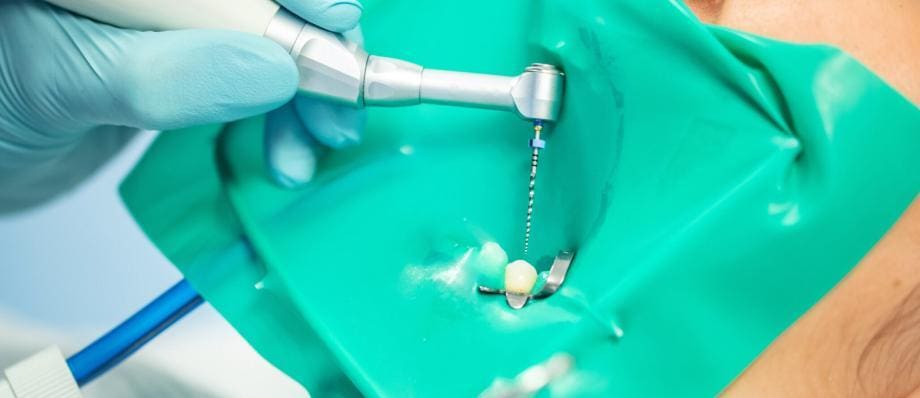Root canal treatment is a commonly performed dental procedure used to treat and save a tooth that has become infected or severely decayed. While the procedure itself aims to alleviate pain and restore dental health, some patients may experience discomfort or pain following a root canal. This article will provide a comprehensive overview of the potential causes of pain after a root canal, strategies to manage and alleviate pain, and when to seek further dental assistance.
Table of Contents
ToggleCauses of Pain After Root Canal Treatment
- Inflammation and Tissue Irritation
- Post-operative Infection
- Tissue Damage
Inflammation and Tissue Irritation
During the root canal procedure, the dentist removes the infected pulp from the tooth and cleans the root canals. This can lead to temporary inflammation and irritation in the surrounding tissues, resulting in mild discomfort or pain.
Post-operative Infection
In some cases, bacteria may persist in the tooth or surrounding tissues, leading to an infection after the root canal. This can cause pain, swelling, and tenderness.
Tissue Damage
Occasionally, minor damage to the tissues surrounding the tooth, such as the gums or ligaments, may occur during the root canal procedure. This can result in localized pain or sensitivity.
Managing Pain After Root Canal Treatment
- Over-the-Counter Pain Medications
- Prescription Medications
- Cold Compress
- Saltwater Rinse
- Soft Diet
- Oral Hygiene Practices
- Avoidance of Extreme Temperatures
- Elevated Sleeping Position
- Stress Reduction Techniques
Over-the-Counter Pain Medications
Non-prescription pain relievers such as ibuprofen or acetaminophen can help manage mild to moderate pain following a root canal. However, it is important to follow the instructions provided and consult with a healthcare professional if you have any concerns.
Prescription Medications
In cases of severe pain or discomfort, your dentist may prescribe stronger pain medications or antibiotics to address any underlying infection.
Cold Compress
Applying a cold compress or ice pack to the affected area can help reduce inflammation and numb the area, providing temporary relief.
Saltwater Rinse
Gently rinsing your mouth with warm saltwater several times a day can help alleviate pain, reduce inflammation, and promote healing.
Soft Diet
Consuming soft foods and avoiding hard or crunchy items can minimize irritation to the treated tooth and surrounding tissues, reducing pain.
Oral Hygiene Practices
Maintaining proper oral hygiene by gently brushing and flossing around the treated tooth can prevent infection and aid in healing.
Avoidance of Extreme Temperatures
Consuming hot or cold foods and beverages can trigger sensitivity and increase discomfort. Opt for lukewarm or room temperature items instead.
Elevated Sleeping Position
Using an extra pillow or propping yourself up slightly can help reduce swelling and alleviate pain while sleeping.
Stress Reduction Techniques
Stress and anxiety can exacerbate pain perception. Engaging in relaxation techniques, such as deep breathing exercises or meditation, can help manage pain and promote overall well-being.
When to Seek Further Dental Assistance
While some level of discomfort or sensitivity is normal after a root canal, it is essential to differentiate between expected post-treatment pain and signs of potential complications. Here are indications that warrant further dental assistance:
- Severe or Prolonged Pain
- Swelling or Abscess Formation
- Persistent Bleeding
- High Fever or Malaise
- Numbness or Tingling
Severe or Prolonged Pain
If the pain intensifies or persists beyond a few days, it may indicate an underlying issue such as infection or damage to the surrounding tissues.
Swelling or Abscess Formation
The development of swelling, tenderness, or a visible abscess near the treated tooth suggests an infection that requires immediate attention.
Persistent Bleeding
If bleeding continues or worsens after the procedure, it could indicate an unresolved issue or inadequate healing.
High Fever or Malaise
Systemic symptoms like fever, chills, or a general feeling of illness may indicate a more severe infection that requires prompt evaluation and treatment.
Numbness or Tingling
If you experience numbness or tingling sensations in the lips, tongue, or other areas of the face, it could be a sign of nerve damage during the root canal procedure. This should be evaluated by your dentist as soon as possible.
Conclusion
Pain after a root canal is a common concern, but with proper understanding and management, it can be effectively addressed. Mild to moderate pain can often be managed with over-the-counter pain medications, cold compresses, and saltwater rinses. However, if the pain is severe, persistent, or accompanied by other concerning symptoms, it is crucial to seek further dental assistance to identify and treat any potential complications. Remember to maintain good oral hygiene, follow your dentist’s instructions, and attend follow-up appointments to ensure successful healing and a pain-free recovery.

